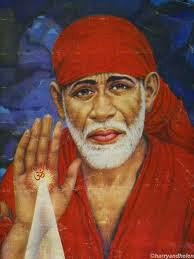
பாலைவன வாழ்க்கை துயரமானது. தற்சமயம் அங்கு தாராளமாக பெட்ரோலியம் கிடைப்பதால், பொருளாதார நிலையில் கடல்நீரையும் குடிநீராக மாற்றிக்கொள்ளும் அளவுக்கு வசதி வாய்ப்புகள் அதிகம். ஆனால், ஆயிரம் ஆண்டுகளுக்கு முன்பு மிகக் கடுமையான வாழ்க்கை அவர்களுக்கு விதிக்கப்பட்டிருந்தது. அந்தத் துயரமான சூழலிலும் வித்தியாசமான சிந்தனைகள் அவர்கள் வாழ்க்கையை வளப்படுத்தின.
பார்வையற்ற யாசகன் ஒருவன் பிச்சை கேட்டவாறு தெருவில் சென்றுகொண்டிருந்தான். அப்போது, அவன் தட்டில் முழு ரொட்டி ஒன்று விழுந்தது. 'கடவுள் உங்களுக்கு நன்மைகள் செய்வாராக. உங்களுக்கு அவருடைய ஆசிகள் கிடைப்பதாக. நீங்கள் உங்கள் நாட்டுக் குப் பாதுகாப்பாகவும் ஆரோக்கியத்துடனும் திரும்பிச்செல்ல அல்லா உதவுவாராக!' என்றான் அந்த யாசகன்.
'நான் இந்தப் பகுதிக்கு அந்நியன் என்பதை எப்படி நீங்கள் அறிந்தீர்கள்?' என்று வியப்புடன் கேட்டார், ரொட்டி தர்மம் செய்தவர்.
'நான் இந்த நகரத்தில் இருபது வருடங்களாக யாசகம் கேட்டு வருகிறேன். ஒருமுறைகூட யாரும் முழு ரொட்டியைத் தந்ததில்லை' என்றான் யாசகன்.
முழு ரொட்டியைப் போடுகிறவன் கட்டாயம் வேறு தேசத்தைச் சேர்ந்தவனாகத்தான் இருக்க வேண்டும் என்று, எவ்வளவு அகப் பார்வையோடு அவன் சிந்தித்திருக்கிறான், பாருங்கள்!
மாற்றி யோசித்தால், தந்திரமாகச் சிந்திப்பவர்களையும் தோற்கடித்து விடலாம் என்பதற்கு, அரேபியக்கதை ஒன்று உண்டு.
அரேபியர்கள் எப்போதும் இசையையும் கவிதைகளையும் நேசிப்பவர்கள். மன்னர்களைப் புகழ்ந்து பாடல்களை இயற்றினால், பரிசுகள் பெறலாம் என்பது தெரிந்ததுதான். ஓர் அரசன் மிகச் சிறந்த ஞாபகசக்தி உடையவன்; அதோடு கூர்மையான அறிவும் நிரம்பப் பெற்றவன். ஒரு கவிதையை ஒருமுறை கேட்டால் போதும்; அதை வரி மாறாமல், வார்த்தை மாறாமல் அப்படியே திருப்பிச்சொல்ல அவனால் முடியும். அவன் சபையில் விதூஷகன் ஒருவன் இருந்தான். அவனும் நினைவாற்றலில் சிறந்தவன்தான். எதையும் இரண்டு முறை கேட்டால், அப்படியே திருப்பிச் சொல்லும் சக்தி உடையவன் அவன். அந்த அவையில் அடிமைப்பெண் ஒருத்தி இருந்தாள். மூன்று முறை கேட்டால், அதை அட்சரம் பிசகாமல் திருப்பிச் சொல்வாள் அவள்.
அந்த அரசன் ஓர் அற்பன். எந்தப் புலவன் வந்து மன்னனைப் புகழ்ந்து பாடினாலும், 'நீ பாடவிருக்கும் பாடல் இதுவரை நான் கேள்விப்படாத, உன்னுடைய சொந்தப் பாடலாக இருந்தால், அதன் எடைக்குச் சமமாக தங்கக் காசுகள் தருவேன்' என்பான்.
வந்த புலவனும், தன் கவிதையைப் படிப்பான். ஒருமுறை கேட்டதுமே மன்னனுக்குத்தான் அது மனப்பாடம் ஆகிவிடுமே! எனவே, ஏதோ ஒரு பெயரைக் குறிப்பிட்டு, 'அந்தக் கவிதை அவர் எழுதியது; நான் ஏற்கெனவே படித்திருக்கிறேன்' என்று சொல்லி, அதை அப்படியே மளமளவென்று ஒப்பிப்பான். புலவன், ''இல்லை. இந்தக் கவிதை என் சொந்தக் கவிதை'' என்று சாதித்தால், 'கிடையவே கிடையாது! இந்தக் கவிதை என் விதூஷகனுக்குக்கூடத் தெரியும்' என்று சொல்லி, விதூஷகனைப் பாடச்சொல்வான் மன்னன். புலவன் பாடி ஒருமுறை, மன்னர் திரும்பச் சொல்லி ஒருமுறை என விதூஷகன் அந்தக் கவிதையை இரண்டு முறை உன்னிப்பாகக் கவனித்திருப்பதால், அவனும் அதை வரி மாறாமல் சொல்லுவான். அப்போதும், ''இருக்க முடியாது! இந்தக் கவிதையை நான் நேற்றுத்தான் புனைந்தேன்!'' என்று புலவன் அழாக்குறையாகச் சொன்னால், 'இல்லை. நீ பொய் சொல்கிறாய். என்னுடைய அடிமைப்பெண்கூட இந்தக் கவிதையைச் சொல்வாள்' என்று சொல்லி, அவளைச் சொல்லச் சொல்லுவான் அரசன். மூன்று முறை கேட்டதால், அவளும் வார்த்தை பிசகாமல் அந்தக் கவிதையைத் திரும்பச் சொல்ல, புலவன் குழம்பிப்போய் சித்தம் கலங்கி, புத்திசுவாதீனத்தை இழக்கும் அளவுக்கு வந்துவிடுவான்.
'அல் அஸ்மாய்' என்கிற கவிஞனுக்கு மட்டும் இந்த உண்மை தெரியும். அரசனுடைய நினைவாற்றல் குறித்தும் தெரியும். எனவே, இதுவரை யாரும் உபயோகிக்காத வித்தியாசமான சொற்களைப் பயன்படுத்தி, அவர் ஒரு கவிதையைத் தயார் செய்தார். அதை அரசனோ, விதூஷகனோ, அடிமைப்பெண்ணோ மனப்பாடம் செய்து திரும்பச்சொல்லவே முடியாது என்கிற அளவில் மிகக் கடினமான ஒரு கவிதையை உருவாக்கினார் அவர். பின்பு, ஒரு வழிப்போக்கரைப்போல மாறுவேடம் பூண்டு, அரசவைக்குச் சென்றார்.
'மன்னரே, நான் உங்களைப் புகழ்ந்து ஒரு கவிதை தயாரித்திருக்கிறேன். உங்களுக்கு படித்துக்காட்ட விரும்புகிறேன்'
'புலவரே! என் நிபந்தனை உங்களுக்குத் தெரியும் அல்லவா?'
'நன்றாகத் தெரியும். அந்த நிபந்தனைக்கு நான் ஒப்புக் கொள்கிறேன்' என்றவர், அந்தப் பாடலைப் பாடிக் காண்பித்தார். கடினமான பதங்களுடன்கூடிய, கரடுமுரடான வரிகள் கொண்ட அந்தப் பாடலைக் கேட்ட மன்னனால், திருப்பிச் சொல்ல முடியவில்லை. மன்னரே தடுமாறியதால், விதூஷகனும் மலங்க மலங்க விழித்தான். அடிமைப்பெண்ணாலும் எதுவும் செய்ய முடியவில்லை. மன்னன் தோல்வியை ஒப்புக்கொண்டான்.
'புலவரே, இது உங்கள் சொந்தப்பாடல் என்பதில் எனக்குச் சந்தேகம் இல்லை. நான் சொன்னதுபோல் உங்களுக்குத் தங்கக் காசுகள் பரிசு தருகிறேன். நீங்கள் பாடல் எழுதிய அந்த ஏட்டைத் தாருங்கள். எங்கள் பொருளாளர் அதன் எடைக்குத் தகுந்தவாறு உங்களுக்குத் தங்கக் காசுகள் தருவார்' என்றான் மன்னன்.
'மன்னரே, இதை நான் காகிதத்தில் எழுத வில்லை. என் வீட்டில் உள்ள பளிங்குத் தூணில்தான் இந்தக் கவிதையைச் செதுக்கி வைத்தேன். அதை இங்கே கொண்டு வந்துள்ளேன்'' என்று சொல்லி, அரண்மனை வாயிலுக்குச் சென்று குரல் கொடுக்க, மிகப் பெரிய பளிங்குத் தூண் ஒன்றை நான்கு பேர் தூக்கி வந்து, அரசவையில் மன்னன் முன் நிறுத்தினர்.
வேறு வழியின்றி, அந்தப் பளிங்குத் தூண் எடை போடப்பட்டு, மன்னனின் கஜானாவிலிருந்து அத்தனை தங்கமும் காலியாகியும், இன்னும் போதாத நிலைமை ஏற்பட்டது. மன்னன் தன் அற்பத்தனத்துக்குத் தலைகுனிந்து வருந்த, அல் அஸ்மாய் பெரிய மனத்துடன் சிறிதளவே தங்கத்தை எடுத்துக்கொண்டு, மன்னனிடமிருந்து விடைபெற்றார்.
துருக்கிய ஆட்சி உச்சத்திலிருந்த காலம். துருக்கியின் சுல்தான், ஐரோப்பாவில் இருக்கும் ஒரு நாட்டுக்கு சுற்றுப்பயணம் சென்றுவர விரும்பினார். அதுகுறித்து வசீரிடம் (முக்கிய அமைச்சர்) தெரிவித்தார். வசீருக்கோ கவலை வந்துவிட்டது.
'மேன்மையானவரே! தங்கள் பயணம் நிச்சயம் சர்வதேச பிரச்னையில் கொண்டுபோய் விட்டு விடும்' என்று எச்சரித்தார் வசீர்.
'ஏன்?'
'நம் நாட்டில் பாரம்பரியமான விதி ஒன்று உண்டு. துருக்கிய சுல்தான் எந்த மண்ணை மிதிக்கிறாரோ, அது துருக்கியின் ஆளுகைக்குள் வந்துவிடும். எனவே, இந்த விதியை நடைமுறைப்படுத்தினால் எல்லைப்பிரச்னையோ, போரோ ஏற்பட வாய்ப்பு உண்டு' என்று தயங்கியவாறே தெரிவித்தார் வசீர்.
ஆனால், சுல்தான் விடுவதாக இல்லை. 'நான் இந்தப் பயணத்தை மேற்கொள்வது என்று முடிவுசெய்துவிட்டேன். எக்காரணம் கொண்டும் என் திட்டத்தை மாற்றிக்கொள்ளப் போவதில்லை. எனவே, எந்த சர்வதேசப் பிரச்னையும் இதனால் ஏற்படாத வண்ணம் நான் பயணம் மேற்கொள்வதற்கான ஏற்பாடுகளைச் செய்க!' என்று ஆணையிட்டார் சுல்தான்.
வசீர் என்ன செய்வது என்று தெரியாமல் குழம்பினார். தலைமை நீதிபதி ஷேக்அல் இஸ்லாம் அவர்களிடம் இதுகுறித்து கலந்தாலோசிக்க முடிவு செய்தார்.
தலைமை நீதிபதி நிறையப் படித்தவர். அதிக ஞானம் உள்ளவர். எந்தப் பிரச்னைக்கும் சாதுரியமாகத் தீர்வு காண்பதில் வல்லவர்.
'பழங்கால விதியை மீறுவதோ, மாற்றுவதோ நடக்காத காரியம். நம் சுல்தான் எந்த மண்ணை மிதிக்கிறாரோ, அது துருக்கிய எல்லைக்குட் பட்டதாகிவிடும் என்பது சட்டபூர்வமான ஒன்று. ஆனால், இந்த விதியை உடைக்காமல் தவிர்க்க ஒரு வழி உண்டு. இந்தப் பயணத்தின்போது சுல்தான் அணிவதற்காக விசேஷமான காலணிகளைச் செய்ய வேண்டும். அந்தக் காலணிக்கு இரண்டு அடிப்பகுதிகள் இருக்க வேண்டும். அந்த இரண்டு அடிப்பகுதிகளுக்கு நடுவில் உள்ள காலி இடத்தில் துருக்கிய நாட்டு மண்ணை நிரப்ப வேண்டும். அப்படிச் செய்தால், நம் சுல்தான் எந்த வெளிநாட்டில் பயணம் செய்தாலும் அவர் உண்மையில் துருக்கிய மண்ணையே மிதித்தவர் ஆவார். எனவே, வேறொரு நாட்டின் எல்லையை நம்முடையதாக்கிக்கொள்கிற சட்டபூர்வமான பிரச்னையும் ஏற்பட வாய்ப்பில்லை' என்று ஆலோசனை சொன்னார் அவர்.
மனிதர்கள் எப்படி ஒன்றும் தெரியாதவர்கள் போல நடிக்கிறார்கள் என்பதை விளக்குவதற்கும் அரேபியக்கதை ஒன்று உண்டு.
ஒருவன் கோதுமையை மாவாக அரைப்பதற்கு, மாவு மில்லில் காத்திருந்தான். வரிசையாக மக்கள் நின்றிருந்தார்கள். இவன் தன் பக்கத்தில் இருப்பவனின் பையிலிருந்து நைஸாக கோதுமையை அள்ளி, அவ்வப்போது தன்னுடைய பையில் போட்டுக்கொண்டிருந்தான். இதை யாரும் கவனிக்கவில்லை என்று நினைத்து, தொடர்ந்து நிதானமாக இப்படிச் செய்துகொண்டிருந்தான் அவன். ஆனால், அவனது இந்தச் செயலை ஆரம்பத்திலிருந்தே பார்த்துக்கொண்டு இருந்தார் மாவு மில்காரர்.
ஒருகட்டத்தில் மிக எரிச்சலுற்று, 'என்ன செய்கிறாய்?' என்று அதட்டினார்.
இந்தத் திருட்டுப்பேர்வழியோ, 'மன்னிக்கவும். நான் ஒரு முட்டாள்'' என்றான்.
'நீ முட்டாளாக இருந்தால், உன் பையில் இருக்கிற கோதுமையை எடுத்துப் பக்கத்தில் உள்ளவரின் பையில் போட வேண்டியதுதானே? ஏன் அப்படிச் செய்யவில்லை?' என்று மடக்கினார் மாவுமில்காரர்.
'அப்படிச் செய்தால் நான் இரண்டு மடங்கு முட்டாளாக, அடிமுட்டாளாக அல்லவா இருப் பேன்!' என்றான் அந்தப் பேர்வழி சாதுர்யமாக.
பழங்காலத்து மரபுக் கதைகள் நமக்கு விழிப்பு உணர்வையும், எச்சரிக்கையையும் அளிப்பவையாக விளங்குகின்றன. வெறும் ஏட்டுச் சுரைக்காயாக அவை இருப்பதில்லை. எந்த இடத்திலும் ஜாக்கிரதையாக இருக்கவேண்டும்;
உலகம் நம்மை ஏமாற்றுவதற்கு எப்போதும் தயாராக இருக்கிறது. எவரையும் லேசில் நம்பிவிடக்கூடாது. பேசுவது ஒன்றாகவும், செய்வது ஒன்றாகவும் உள்ள மனிதர்கள் ஏராளம் பேர் இருக்கிறார்கள். அவர்கள் சொல்வதை அப்படியே நம்பினால், ஏமாறுவதைத் தவிர, வேறு வழியில்லை. நாம் பெரிய படிப்பாளி, நமக்கு எல்லாம் தெரியும், நம்மை யாராலும் ஏமாற்ற முடியாது என்று அலட்சியமாக நினைத்துவிடக் கூடாது என்பதை இந்தக் கதைகள் அறிவுரையாக நமக்கு வழங்குகின்றன.











